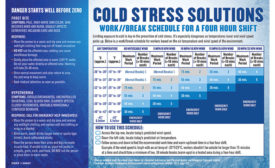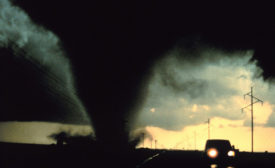Home » Keywords: » extreme weather hazards
Items Tagged with 'extreme weather hazards'
ARTICLES
Safety Talk
Hypothermia dangers increase as fatigue sets in and thought processes slow down
January 20, 2022
Working in a winter wonderland
Four things to know about snow
A U.S. DOL Blog post
January 22, 2016
Become a Leader in Safety Culture
Build your knowledge with ISHN, covering key safety, health and industrial hygiene news, products, and trends.
JOIN TODAYCopyright ©2025. All Rights Reserved BNP Media.
Design, CMS, Hosting & Web Development :: ePublishing




